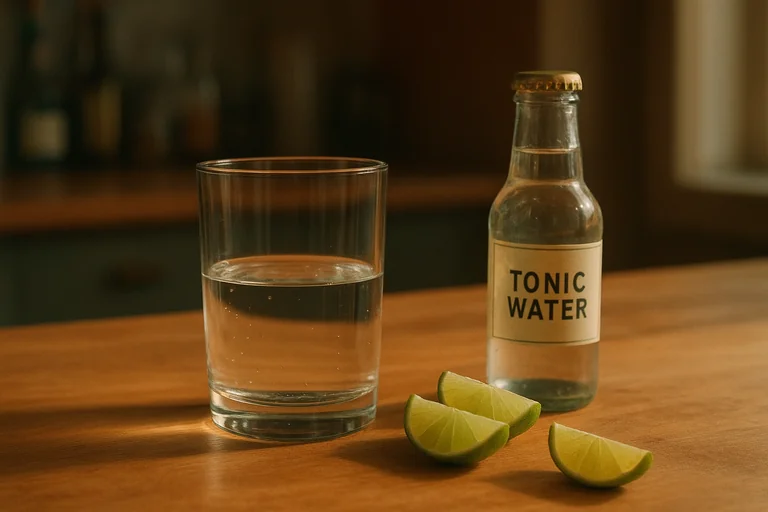A 2 minute assessment to get a personalized mental health or alcohol recovery plan.
Your liver can only process a certain amount of alcohol per hour - there's no magic trick to speed it up, but you can support your body's natural processes.
What You'll Discover:
- How your liver metabolizes alcohol step-by-step.
- Why you can't speed up alcohol metabolism.
- Individual factors that affect how you process alcohol.
- Common myths about sobering up quickly (and why they don't work).
- Evidence-based strategies to support your body's detoxification.
- Long-term health consequences of alcohol metabolism.
Is there a way to sober up faster? Whether you have an early morning meeting, need to drive home, or simply want to shake off the effects of a night out, this is a common question. The internet is flooded with supposed quick fixes, from chugging coffee to taking a cold shower. But what does the science actually say?
In this guide, we'll separate fact from fiction and explore the complex process of alcohol metabolism.
How Your Body Metabolizes Alcohol
Before we can talk about speeding up the process, it's essential to understand how your body metabolizes alcohol. Think of it as a factory assembly line with a fixed speed. Once alcohol enters your bloodstream, it's up to your liver to do the heavy lifting. More than 90% of the alcohol you consume is eliminated by the liver, with the remaining 2-5% excreted through urine, sweat, and breath.
The Liver: Your Body's Primary Detoxification Plant
The liver is the main organ responsible for breaking down alcohol. As the National Institute on Alcohol Abuse and Alcoholism (NIAAA) explains, the primary pathway involves two key enzymes:
1. Alcohol Dehydrogenase (ADH) - This enzyme begins the process by converting ethanol (the alcohol in your drink) into a highly toxic and carcinogenic compound called acetaldehyde.
2. Aldehyde Dehydrogenase (ALDH) - Acetaldehyde is then quickly broken down by ALDH into a less toxic substance called acetate. This acetate is eventually metabolized into carbon dioxide and water, which are then easily eliminated from the body.
This two-step process is the body's primary defense against alcohol poisoning. However, the intermediate byproduct, acetaldehyde, is a major culprit behind many of the negative effects of alcohol, including hangovers and long-term cellular damage.
The Bottleneck: Why You Can't Speed Up the Process
The critical takeaway is that your liver can only process a certain amount of alcohol per hour, regardless of how much you drink. This rate is approximately one standard drink (0.6 ounces of pure alcohol) per hour. When you drink faster than your liver can process, the excess alcohol builds up in your bloodstream, leading to intoxication. This is the bottleneck in the system.
There is no magic pill or secret trick to make your liver work faster. As a comprehensive review in Alcohol Research & Health highlights, the rate of alcohol elimination is influenced by a variety of factors, but it cannot be significantly accelerated by external interventions.
Why We All Metabolize Alcohol Differently
Have you ever wondered why your friend can have three drinks and feel fine, while you're feeling the effects after just one? The answer lies in the wide range of factors that influence how each individual metabolizes alcohol.
Genetic Makeup - Your genes play a significant role in how your body handles alcohol. Variations in the genes that produce the ADH and ALDH enzymes can make a big difference. For example, some people of East Asian descent have a genetic variant that causes a rapid buildup of toxic acetaldehyde, causing facial flushing, nausea, and a rapid heartbeat (often called "Asian flush").
Gender - On average, women tend to have a higher Blood Alcohol Concentration (BAC) than men after drinking the same amount of alcohol. Women generally have less body water than men of the same weight, which means the alcohol is less diluted. Additionally, women have lower levels of ADH in their stomachs.
Age - As we age, our ability to metabolize alcohol can change. Older adults tend to have less body water and may have a slower metabolism, which can lead to a higher BAC.
Body Weight and Composition - A person with a higher body weight will generally have a lower BAC than a person with a lower body weight after drinking the same amount. Body composition also plays a role, as alcohol is not absorbed into fat tissue as readily as it is into muscle tissue.
Food Intake - Drinking on an empty stomach is a sure-fire way to get intoxicated quickly. Food in the stomach, particularly meals high in protein, fat, and fiber, slows down the absorption of alcohol into the bloodstream.
Overall Health and Liver Function - Your overall health, and particularly the health of your liver, is a major factor in how you metabolize alcohol. As the Cleveland Clinic points out, the more damage your liver has sustained, the less efficient it will be at its job.
Debunking the Myths About Sobering Up Quickly
Now that we understand the science, let's address the many myths about sobering up quickly. While some of these might make you feel more alert, they do absolutely nothing to lower your BAC.
Myth 1: A Strong Cup of Coffee Will Sober You Up - While the caffeine in coffee is a stimulant that can make you feel more awake and alert, it does not speed up the metabolism of alcohol. This can be a dangerous combination. The alertness from coffee can mask the depressant effects of alcohol, leading you to believe you are less intoxicated than you actually are.
Myth 2: A Cold Shower Will Shock You into Sobriety - A cold shower might wake you up, but it won't lower your BAC. The shock of cold water can cause a temporary increase in alertness, but it has no effect on how quickly your liver is processing alcohol.
Myth 3: Eating a Big Meal After Drinking Will Absorb the Alcohol - While eating before you drink can slow absorption, eating after you've already been drinking will not sober you up. The alcohol is already in your bloodstream, and food won't "soak it up."
Myth 4: Exercising or Sweating it Out Will Get Rid of the Alcohol - While a small amount of alcohol is eliminated through sweat, it's a negligible amount. The vast majority is metabolized by the liver, and exercising won't speed up this process. In fact, exercising while intoxicated can be dangerous.
Myth 5: "Hair of the Dog" Will Cure Your Hangover - Drinking more alcohol the next morning to cure a hangover will only prolong the recovery process and put more strain on your liver. The only true cure for a hangover is time and hydration.
It's important to be skeptical of any product or method that claims to sober you up quickly. The science is clear: only time can lower your BAC.
What Actually Works: Supporting Your Body's Natural Processes
While you can't speed up the metabolism of alcohol, you can support your body's natural detoxification processes and make choices that promote a healthier relationship with alcohol.
Hydration is Key - Alcohol is a diuretic that can lead to dehydration. Drinking plenty of water while consuming alcohol can help mitigate some of the negative effects of dehydration, such as headaches and fatigue. While it won't lower your BAC, it will help you feel better.
Eat Before You Drink - Eating a meal before you start drinking can slow the absorption of alcohol into your bloodstream. This gives your liver more time to process the alcohol and can result in a lower peak BAC.
Pace Yourself - Mindful drinking is all about being aware of how much you're drinking and how it's affecting you. By pacing yourself and sticking to the one-drink-per-hour rule, you can avoid overwhelming your liver.
Get Plenty of Rest - Sleep is when your body does most of its repair work. Getting a good night's sleep after drinking can help your body recover and process any remaining alcohol.
Consider a Break from Alcohol - If you're concerned about your drinking habits, taking a break from alcohol can be a great way to reset your system and re-evaluate your relationship with alcohol. Challenges like Sober October can be a great way to experience the benefits of a sober lifestyle.
Long-Term Health Consequences of Alcohol Metabolism
While the immediate effects of alcohol are often the most apparent, the long-term health consequences of chronic alcohol consumption are largely driven by the metabolic process itself. The constant strain on the liver and the toxic byproducts of alcohol metabolism can lead to a cascade of health problems.
Alcohol-Related Liver Disease (ARLD) - This includes:
- Fatty Liver (Steatosis) - The earliest stage, often reversible with abstinence
- Alcoholic Hepatitis - Inflammation of the liver, can be life-threatening
- Cirrhosis - The most advanced stage with irreversible scarring
Increased Cancer Risk - The International Agency for Research on Cancer (IARC) has classified alcohol as a Group 1 carcinogen. The primary culprit is acetaldehyde, the toxic byproduct of alcohol metabolism. Alcohol consumption has been linked to mouth and throat cancer, esophageal cancer, liver cancer, breast cancer, and colorectal cancer.
Pancreatitis - Chronic alcohol consumption is a leading cause of pancreatitis, a painful inflammation of the pancreas that can lead to serious complications, including diabetes and pancreatic cancer.
Cardiovascular Disease - Chronic heavy drinking can lead to high blood pressure, irregular heartbeat, and a weakening of the heart muscle. All of these factors can increase your risk of heart attack and stroke.
Understanding these long-term risks is a powerful motivator for adopting a healthier relationship with alcohol.
Time is the Only True Sobering Agent
The desire for a quick fix is understandable, but when it comes to metabolizing alcohol, there are no shortcuts. The science is clear: only time can lower your blood alcohol concentration. Your liver is a remarkably efficient organ, but it works at its own pace.
Instead of searching for a magic bullet, focus on supporting your body's natural processes. Stay hydrated, eat a balanced meal before you drink, pace yourself, and get plenty of rest. These are the evidence-based strategies that will help you feel your best and maintain a healthy relationship with alcohol.
If you find that you are consistently drinking more than you intend to, or if you are concerned about your drinking habits, it may be time to seek professional help.
Ready to explore your options? Take the Alcohol Use Assessment to learn more about your drinking patterns.
References
[1] National Institute on Alcohol Abuse and Alcoholism (NIAAA). "Alcohol Metabolism" https://www.niaaa.nih.gov/publications/alcohol-metabolism
[2] Alcohol Research & Health. "Overview: How Is Alcohol Metabolized by the Body?" https://pmc.ncbi.nlm.nih.gov/articles/PMC6527027/
[3] Cleveland Clinic. "How Long Does It Take to Detox From Alcohol?" https://health.clevelandclinic.org/detox-liver-from-alcohol
[4] Healthline. "How Long Does Alcohol Stay in Your System?" https://www.healthline.com/health/how-long-does-alcohol-stay-in-your-system




